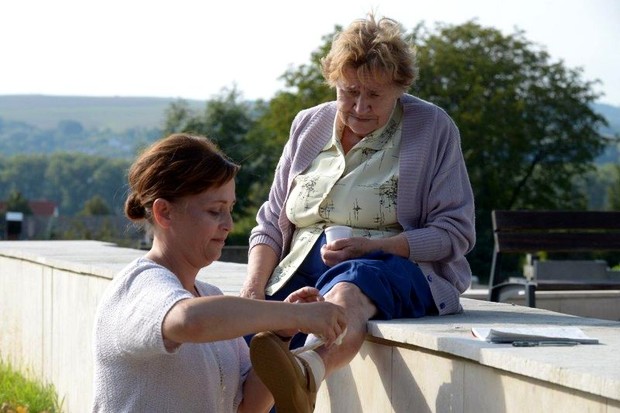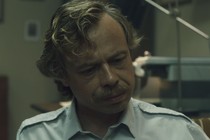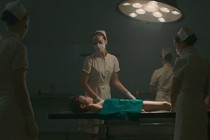Home Care: Living and dying simply yet effectively
- KARLOVY VARY 2015: This noteworthy debut feature combining drama and comedy in a story about dying is competing in the main competition at the KVIFF

Every day, the protagonist of Home Care [+see also:
trailer
interview: Slávek Horák
film profile], nurse Vlasta (Alena Mihulová), tends to patients who are confined to the four walls of their dwellings in the countryside, with enviable rigour. As a selfless Mother Teresa figure, she puts the wellbeing of the patients entrusted to her before her own needs, to such an extent that she is even willing to pay the transport costs out of her own pocket in order to carry out her mission, which is rewarded with meagre wages. However, a sudden twist of fate in Vlasta’s life prompts a change.
Czech director Slávek Horák, who has primarily directed adverts up to now, crafted his feature debut by basing it on his mother’s experiences as a nurse, using this background as a framework for a journey to self-discovery and the embracing of an unenviable situation. It is only after classic medicine has failed that Vlasta finds herself drifting towards the use of an alternative, more esoteric, kind of treatment – an approach that, as a professional nurse, she would have dismissed before. A Slovakian guru’s (Zuzana Krónerová) unorthodox therapy reveals a diagnosis that differs from the doctors’ observations: it is the soul that needs to be treated, not the flesh.
Home Care is a surprisingly uncomplicated, yet very effective, humane drama about dying, and more besides. Vlasta, the embodiment of self-sacrifice, is built on the female prototype of a giver – both in her professional life, as she patiently puts up with the sick and their whims, and in her private life, towards her husband, Láďa (Bolek Polívka), in what seems to be a marriage devoid of any passion and stagnating in routine. The Czech comedy Hourly Husband [+see also:
trailer
film profile] adopted the male perspective as it tackled the theme of a decaying marriage due to a husband’s neglect; however, Horák’s movie penetrates beyond the carnal surface, making for an unsentimental and touching portrayal.
The director compensates for the grim subject matter through comic and uplifting touches whilst avoiding heading down the well-trodden path. Instead of calling Home Care an “existentialist drama”, a “gentle tragicomedy” would perhaps better reflect its fundamental nature. Unforced humour emerges from everyday situations, and even when the proceedings start to verge on the farcical, Horák does not tear down the carefully built-up and well-maintained atmosphere for the sake of a cheap laugh. One particularly memorable joke revolves around an “underpass for frogs”, a believable absurdity that could easily be plucked from real life, and which also serves to foreshadow a witty light-at-the-end-of-the-tunnel scene effectively executed in perfect harmony with the film’s civil, uncomplicated tone, with no hint of any ominous qualities. This method also applies to other jokes-cum-metaphors, though the director keeps the tropes to a bare minimum so as not to dilute the film’s central message.
Lead actress Mihulová puts on an amazing and potentially award-winning performance, while supporting actor Polívka demonstrates numerous sides to his acting talent. The power of Horák’s debut lies in its frankness: the central couple was inspired by his parents, and he adopts an unsentimental and non-melodramatic approach to tackling a premise that has “tear-jerker” written all over it. The finely tuned chemistry between tragedy and comedy, encapsulated in a humanistic story, and the director’s masterful ability to maintain a civil atmosphere would seem to earmark Home Care for a wide audience that might have avoided the film if it had employed a slightly bleaker or weepier tone.
Home Care is produced by TVORBA Films in co-production with Fog ‘n’ Desire Films, Czech Television, Svoboda&Williams and Slovakian outfit Sokol Kollár. Financial support was provided by the Czech State Cinema Fund and the Slovak Audiovisual Fund. Domestic distribution is handled by A-Company Czech.
Did you enjoy reading this article? Please subscribe to our newsletter to receive more stories like this directly in your inbox.

























